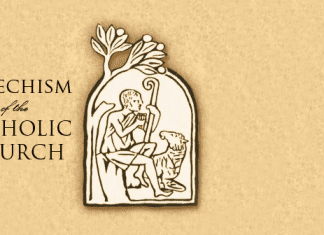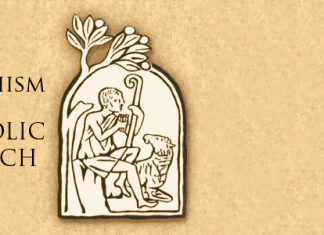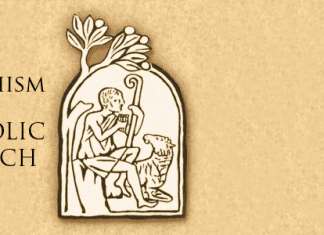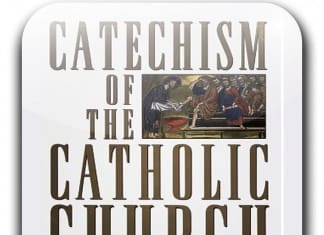Catechism of The Catholic Church #674
674 The glorious Messiah's coming is suspended at every moment of history until his recognition by "all Israel", for "a hardening has come upon part of Israel" in their "unbelief" toward Jesus. St. Peter says to the Jews of Jerusalem after Pentecost: "Repent therefore, and turn again, that your sins may be blotted out, that times of refreshing may come from the presence of the Lord, and that he may send the Christ appointed for you, Jesus, whom heaven must receive until the time for establishing all that God spoke by the mouth of his holy prophets from of old." St. Paul echoes him: "For if their rejection means the reconciliation of the world, what will their acceptance mean but life from the dead?" The "full inclusion" of the Jews in the Messiah's salvation, in the wake of "the full number of the Gentiles", will enable the People of God to achieve "the measure of the stature of the fullness of Christ", in which "God may be all in all".
Catechism of The Catholic Church #1048
1048 "We know neither the moment of the consummation of the earth and of man, nor the way in which the universe will be transformed. the form of this world, distorted by sin, is passing away, and we are taught that God is preparing a new dwelling and a new earth in which righteousness dwells, in which happiness will fill and surpass all the desires of peace arising in the hearts of men."
Catechism of The Catholic Church #2131
2131 Basing itself on the mystery of the incarnate Word, the seventh ecumenical council at Nicaea (787) justified against the iconoclasts the veneration of icons - of Christ, but also of the Mother of God, the angels, and all the saints. By becoming incarnate, the Son of God introduced a new "economy" of images.
Catechism of The Catholic Church #2267
2267 The traditional teaching of the Church does not exclude, presupposing full ascertainment of the identity and responsibility of the offender, recourse to the...
Catechism of The Catholic Church #1392
1392 What material food produces in our bodily life, Holy Communion wonderfully achieves in our spiritual life. Communion with the flesh of the risen...
Catechism of The Catholic Church #1336
1336 The first announcement of the Eucharist divided the disciples, just as the announcement of the Passion scandalized them: "This is a hard saying;...
Catechism of The Catholic Church #903
903 Lay people who possess the required qualities can be admitted permanently to the ministries of lector and acolyte. When the necessity of the Church warrants it and when ministers are lacking, lay persons, even if they are not lectors or acolytes, can also supply for certain of their offices, namely, to exercise the ministry of the word, to preside over liturgical prayers, to confer Baptism, and to distribute Holy Communion in accord with the prescriptions of law."
Catechism of The Catholic Church #525
525 Jesus was born in a humble stable, into a poor family. Simple shepherds were the first witnesses to this event. In this poverty heaven's glory was made manifest. The Church never tires of singing the glory of this night:
Catechism of The Catholic Church #724
724 In Mary, the Holy Spirit manifests the Son of the Father, now become the Son of the Virgin. She is the burning bush of the definitive theophany. Filled with the Holy Spirit she makes the Word visible in the humility of his flesh. It is to the poor and the first representatives of the gentiles that she makes him known.
Catechism of The Catholic Church #1964
1964 The Old Law is a preparation for the Gospel. "The Law is a pedagogy and a prophecy of things to come."It prophesies and...

















